Tips Articles
2026.01.24
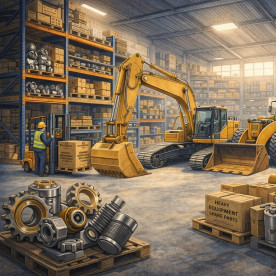
Yet in many organizations, spare parts logistics is still treated as a warehouse function rather than a business control system. 2026.01.17
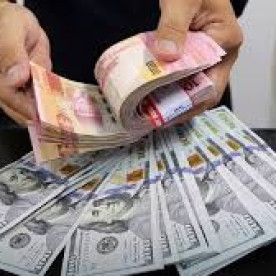
For companies dependent on imports, exchange rate movements are more than macroeconomic noise — they have direct implications on cost, cash flow, and inventory risk. 2026.01.06
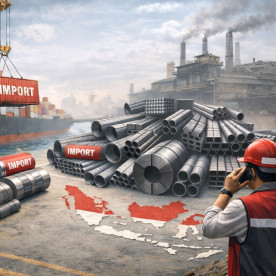
To some, it seemed like a typical protectionist move. But for industry players, it was a strategic signal about where global steel trade is heading in 2026. 2025.12.29
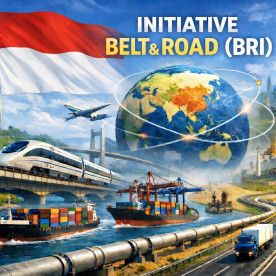
The deeper impact of the BRI lies in how it reshapes trade routes, supply chains, and the distribution of economic value across Asia. 2025.12.08
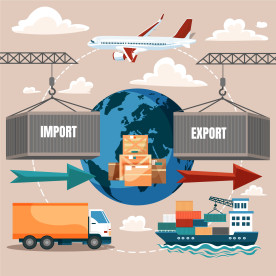
Accuracy in HS codes, customs values, and document consistency now define your compliance risk. 2025.11.30
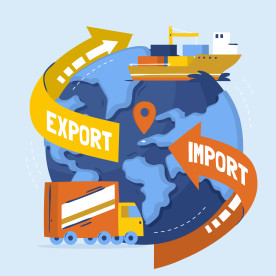
The Minister of Finance personally inspected containers valued at only Rp117,000 on paper — but sold for Rp50 million in the market. That single case alone could have cost the state Rp220 million. 2025.11.24
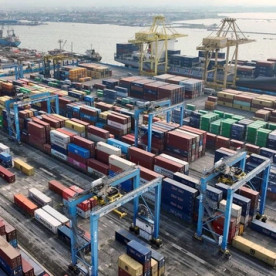
The government has enhanced monitoring, upgraded digital systems, and closed long-standing loopholes that caused revenue losses — from under-invoicing and HS code errors to non-compliant product standards. 2025.11.17
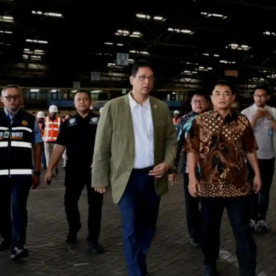
Audits now target not only those who intentionally manipulate data but also minor discrepancies often overlooked by importers who actually intend to comply. 2025.11.09

Many importers feel secure once they obtain a masterlist from BKPM or the Ministry of Investment.
The logic seems simple: if import duties and VAT are exempted, imports should go smoothly. 2025.11.02
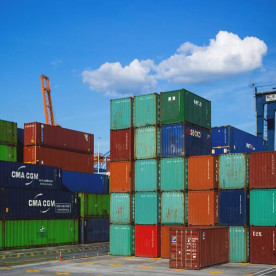
In recent months, many steel importers have complained about long delays and increasing rejection rates for Import Approval (PI) applications by the Ministry of Trade. 2025.10.27
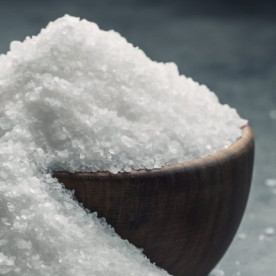
Salt is not just for the kitchen — it plays a vital role in food & beverage, pharmaceuticals, chemicals, and mining. 2025.10.20
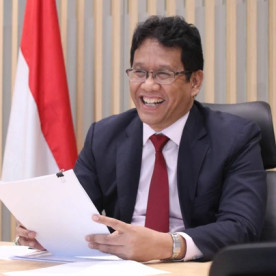
In recent years, many importers in Indonesia have felt secure by outsourcing all import matters to third parties — forwarders or logistics agents. “As long as the goods arrive,” they thought.

Read this article
Spare Parts Logistics as a Strategic Control System: How TCI Safeguards Uptime, Capital, and Trust
For executives and heavy equipment asset owners, spare parts are not just operational items — they are strategic instruments that determine three critical outcomes: equipment uptime, working capital efficiency, and risk control.Yet in many organizations, spare parts logistics is still treated as a warehouse function rather than a business control system. 2026.01.17

Read this article
Rupiah Volatility: Why Importers Lose Money Even Before Goods Are Sold
In recent weeks, the rupiah’s exchange rate volatility has once again drawn attention in Indonesia’s economic landscape.For companies dependent on imports, exchange rate movements are more than macroeconomic noise — they have direct implications on cost, cash flow, and inventory risk. 2026.01.06

Read this article
When Cheap Steel Floods the Market: Lessons from India’s Tariff Policy for Indonesia’s Steel Future
At the end of 2025, India took a decisive step: imposing tariffs on select imported steel products to curb the influx of cheap steel.To some, it seemed like a typical protectionist move. But for industry players, it was a strategic signal about where global steel trade is heading in 2026. 2025.12.29

Read this article
Indonesia at a Crossroads: Turning the Belt & Road Into a Long-Term Trade Advantage
China’s Belt and Road Initiative (BRI) is often discussed in Indonesia through the lens of infrastructure—high-speed rail, ports, industrial zones, and power plants. These projects are important, but they’re not the full story.The deeper impact of the BRI lies in how it reshapes trade routes, supply chains, and the distribution of economic value across Asia. 2025.12.08

Read this article
Secure Your Import Structure.
Under DJBC’s data-driven and risk-based monitoring system, importers can no longer rely on old habits.Accuracy in HS codes, customs values, and document consistency now define your compliance risk. 2025.11.30

Read this article
Check Yourself: How Customs Determines “Fair Value” — Your Essential Pre-Shipment Checklist
In the past week, Indonesian importers have faced a tough reality: your invoice value is no longer accepted as absolute truth.The Minister of Finance personally inspected containers valued at only Rp117,000 on paper — but sold for Rp50 million in the market. That single case alone could have cost the state Rp220 million. 2025.11.24

Read this article
Ready for Stricter Import Regulations: A Practical Guide for Indonesian Importers
In recent months, importers in Indonesia have experienced tighter regulations.The government has enhanced monitoring, upgraded digital systems, and closed long-standing loopholes that caused revenue losses — from under-invoicing and HS code errors to non-compliant product standards. 2025.11.17

Read this article
Compliance Isn’t Enough: Small Gaps That Can Lead to Big Findings in Indonesia’s New Import Oversight Era
Recent findings by Finance Minister Purbaya Yudhi Sadewa during inspections at Tanjung Priok and Tanjung Perak reveal that Indonesia’s import monitoring has entered a much stricter phase.Audits now target not only those who intentionally manipulate data but also minor discrepancies often overlooked by importers who actually intend to comply. 2025.11.09

Read this article
Already Have a Masterlist, So Why Is My Cargo Still Stuck at the Port?
When a Masterlist Is No Longer a Guarantee for Smooth ImportsMany importers feel secure once they obtain a masterlist from BKPM or the Ministry of Investment.
The logic seems simple: if import duties and VAT are exempted, imports should go smoothly. 2025.11.02

Read this article
Why Are So Many Steel Import Permits Rejected? 5 Fatal Mistakes Importers Must Avoid
The Growing Wave of Import Permit RejectionsIn recent months, many steel importers have complained about long delays and increasing rejection rates for Import Approval (PI) applications by the Ministry of Trade. 2025.10.27

Read this article
New Salt Import Regulation 2025: Is Your Industry Ready?
Behind a pinch of salt lies the lifeblood of Indonesia’s key industries.Salt is not just for the kitchen — it plays a vital role in food & beverage, pharmaceuticals, chemicals, and mining. 2025.10.20

Read this article
Is Your Import Truly Legal? The Era of “Forwarders Handle Everything” Is Ending
The End of Blind Reliance on ForwardersIn recent years, many importers in Indonesia have felt secure by outsourcing all import matters to third parties — forwarders or logistics agents. “As long as the goods arrive,” they thought.